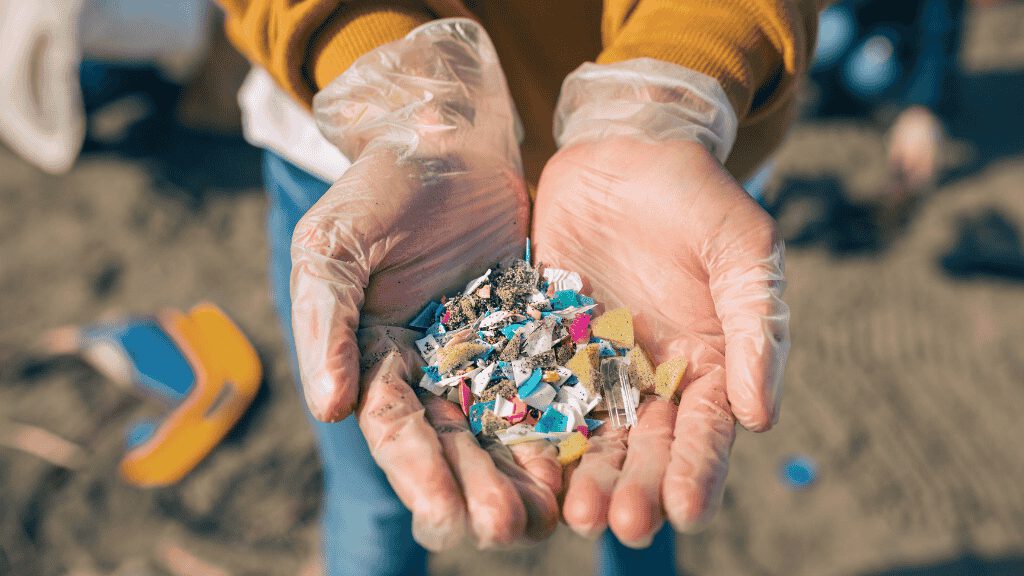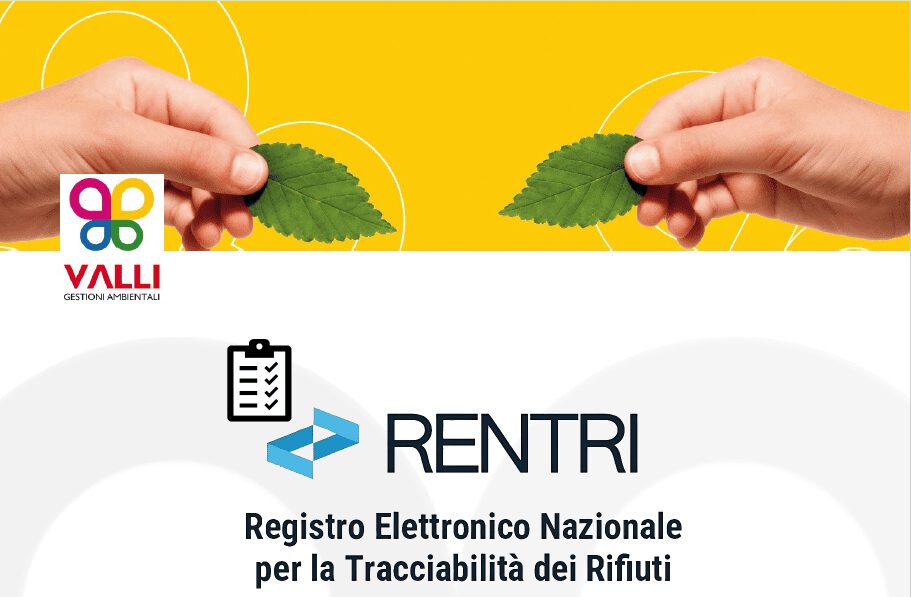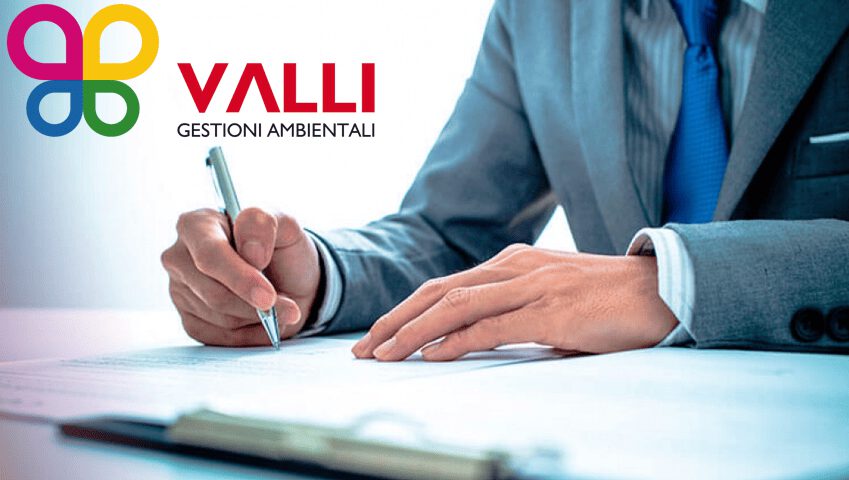In the context of small and medium-sized enterprises, waste management is often a complex challenge. Micro-waste collection is a tailor-made solution designed for SMEs, which allows you to properly dispose of special and hazardous waste in a simple, compliant and sustainable way.
With this service, companies can avoid fines, reduce environmental impact, and optimize operating costs. But what exactly does micro-collection consist of? And why is it a strategic advantage for small businesses? Let’s find out in the next paragraphs.
Regulations and obligations for SMEs
The management of company waste is regulated by a series of regulations that impose precise obligations on companies in terms of collection, transport and disposal. SMEs, even if they have low volumes of waste, must comply with these provisions in order to avoid penalties and contribute to environmental protection.
The main reference regulations
In Italy, waste management is governed by Legislative Decree 152/2006 (Consolidated Environmental Act), which establishes the rules for proper disposal and assigns companies responsibility for the traceability of the waste produced. Some key points include:
- Waste classification: companies must correctly identify the waste produced, distinguishing it into municipal, special, hazardous and non-hazardous waste, based on the European Waste Code (CER/EER).
- Traceability obligation: SMEs must ensure the correct registration of the waste produced through the Waste Identification Form (FIR) and, for certain categories, the Loading and Unloading Register and the Single Environmental Declaration Model (MUD).
- Entrustment to authorized parties: transport and disposal must be carried out by certified operators registered in the National Register of Environmental Managers, as required by law.
Risks and penalties for improper handling
Failure to comply with regulations can result in serious consequences for businesses, including:
- Administrative penalties: for errors in the compilation of registers or in the delivery of waste, fines can vary from €2,600 to over €15,000, depending on the seriousness of the violation.
- Criminal liability: In the event of illegal disposal or abandonment of hazardous waste, harsher penalties are envisaged, including fines and imprisonment of up to two years.
How to simplify waste management for SMEs
To avoid regulatory problems and optimize waste management, many small and medium-sized enterprises choose to rely on micro-collection services provided by specialized companies. These services allow you to:
- Delegate bureaucratic and operational management to professionals in the sector.
- Ensure the correct disposal of waste in full compliance with the law.
- Reduce the risk of penalties thanks to a tailor-made and personalized service.
In the next paragraphs we will see in more detail how the micro-collection service works and what are the concrete advantages for SMEs.
How does the micro-waste collection service work?
Micro-waste collection is a service designed for SMEs that generate small quantities of special, hazardous or non-hazardous waste and need disposal in compliance with current regulations. This service is based on a structured process that guarantees the collection, transport and correct disposal of waste, without the client company having to worry about bureaucratic and logistical aspects.
The first step is the analysis of the needs of the company. Each company produces different waste based on its activity and the materials used. A craft workshop, for example, may have paint and solvent residues, while a machine shop will have to handle used oils and batteries. For this reason, the micro-collection service begins with a detailed assessment of the waste produced and the related disposal methods required by law.
Once the type of waste and the frequency of collection have been defined, we proceed with the operational phase of the service. An authorized operator takes care of the collection directly at the company’s headquarters, using vehicles and containers suitable for safe transport. During this phase, it is essential to comply with traceability regulations, so each delivery is recorded through the Waste Identification Form (FIR), a mandatory document that certifies the correct disposal.
After collection, the waste is transported to authorized facilities for treatment and disposal. Here they undergo specific processes according to their nature. Some materials can be recovered or recycled, while others require special treatments to reduce their environmental impact. The ultimate goal of microcollection is not only regulatory compliance, but also a more sustainable approach to waste management, promoting reuse and recycling where possible.
For companies, relying on a micro-collection service means being able to count on simplified and secure management, without having to deal with technical and regulatory aspects. In addition to collection and disposal, in fact, the service can also include environmental consultancy, with the aim of helping the company improve its waste management practices and reduce its ecological impact.
In the following paragraphs, we will analyze the concrete advantages that this service offers to SMEs, highlighting how it can represent an opportunity not only for regulatory compliance, but also for cost optimization and business sustainability.
The benefits of micro-collection for SMEs
One of the main benefits is guaranteed regulatory compliance. Waste management is a complex and constantly evolving aspect, with specific regulations that require attention and constant updates.
SMEs, often without an internal department dedicated to environmental management, risk incurring administrative errors that can translate into significant economic sanctions. With the micro-collection service, the company relies on a specialized operator who takes care of all the bureaucratic aspects, ensuring that the waste is collected, transported and disposed of in total compliance with current regulations.
In addition to the regulatory aspect, micro-collection also allows a reduction in management costs. Waste disposal can be a significant economic burden for small businesses, especially if it is managed inefficiently. Thanks to a tailor-made service, it is possible to plan the collection according to the real needs of the company, avoiding waste and optimizing resources. In addition, the possibility of grouping several deliveries in a single operation allows you to reduce costs related to transport and logistics.
A further benefit is represented by the improvement of the company’s environmental impact. Today, more and more companies are paying attention to sustainability and reducing their ecological footprint. Micro-collection not only ensures correct and certified disposal, but also promotes the recovery and recycling of materials wherever possible. This not only contributes to environmental protection, but also represents added value in terms of corporate social responsibility (CSR), improving the company’s reputation in the eyes of customers and business partners.
Finally, an often underestimated aspect concerns safety in the workplace. The presence of special or hazardous waste within a corporate environment can pose a risk to both employees and facilities. A micro-collection service allows you to keep workspaces clean and safe, reducing the danger of accidents or contamination.
Investing in a micro-collection service therefore means choosing a solution that combines efficiency, safety and sustainability, transforming a regulatory obligation into an opportunity for growth for your business. In the next paragraph we will see how to choose the right supplier to ensure a reliable service tailored to the needs of your company.
How to choose the right supplier for micro waste collection
Choosing a reliable supplier for your micro-waste collection service is a crucial aspect of ensuring safe, compliant and optimised management. Not all disposal companies offer the same level of expertise and transparency; therefore, it is essential to carefully evaluate some elements before entrusting the management of waste to your company.
The first aspect to consider is the authorization and certification of the supplier company. The legislation requires that only qualified operators can manage the collection, transport and disposal of waste; therefore, it is essential to verify that the supplier is regularly registered in the National Register of Environmental Managers and that it has all the necessary authorizations. A reliable company must be able to provide clear and up-to-date documentation regarding its activity and waste management processes.
Consult the page dedicated to the authorizations of Valli Gestioni Ambientali.
Another key element is transparency in waste management and traceability. The supplier must ensure that each collection is accompanied by mandatory documentation, such as the Waste Identification Form (FIR), and that the entire disposal route can be traced. This not only protects the client company from possible penalties, but also ensures that the waste is treated according to sustainable environmental criteria.
Service flexibility is also a determining factor. Each SME has different needs based on the quantity and type of waste produced; therefore, the supplier must offer customized solutions, with a recall schedule that meets the operational needs of the company. Additional services, such as environmental consulting or the provision of suitable containers, can make all the difference in choosing the right partner.
Finally, it’s important to consider the vendor’s reputation and experience. Relying on a company with years of experience in the sector and with positive references from other customers is a guarantee of reliability. Today, thanks to online reviews and references, it is easier to evaluate the quality of the service offered and choose a partner who can best support the management of company waste.
Regulations and obligations for SMEs in waste management
Waste management for SMEs is regulated by a series of strict environmental regulations, aimed at ensuring proper disposal and reducing the ecological impact of production activities. Failure to comply with these regulations can result in economic penalties, legal liability and damage to corporate reputation, making it essential for companies to know and correctly apply their obligations under the law.
One of the most important aspects concerns the classification of waste, which must be carried out according to the European Waste Catalogue (EWC/EER). Each waste produced by a company is identified by a specific EWC / EER code, which determines the methods of disposal and any hazardousness. Companies have the obligation to correctly identify their waste and to entrust it to authorized parties for collection and treatment.
Another fundamental obligation is the traceability of waste. Each company must fill in and keep the Waste Identification Form (FIR), which documents every step, from collection to final disposal. In addition, some companies are required to register with the National Electronic Register for Waste Traceability (RENTRI), a system that digitizes the entire special waste management process.
SMEs must also comply with the rules on temporary waste storage, which govern how waste must be stored before collection by an authorised operator. The law establishes time limits and maximum quantities of accumulating waste, as well as specific safety criteria for the deposit of hazardous materials.
Relying on a qualified supplier for micro-collection not only facilitates operational waste management, but also ensures that all regulations are complied with, reducing the risk of penalties and ensuring responsible environmental management.
Why choose Valli Gestioni Ambientali for micro-waste collection
For SMEs, waste management is a complex challenge that requires expertise, reliability and regulatory compliance. Relying on an expert partner such as Valli Gestioni Ambientali means being able to count on a safe, efficient and personalized micro-waste collection service, able to meet the specific needs of each company.
Thanks to a team of highly qualified professionals and a long experience in the sector, Valli Gestioni Ambientali offers complete support, from the initial assessment of waste to the management of mandatory documentation, ensuring maximum transparency and regulatory compliance. The service is designed to optimize time and reduce management costs, with tailor-made solutions that allow companies to focus on their business without worrying about bureaucratic and operational aspects related to waste.
Another strength is the focus on sustainability. In addition to ensuring safe and certified disposal, we are committed, where possible, to ensuring the recovery and recycling of materials where possible, contributing to a more responsible management of resources and the reduction of environmental impact.
Choosing Valli Gestioni Ambientali means investing in a quality, reliable and sustainable service, which transforms waste management from a regulatory obligation into an opportunity for growth and improvement for your company. To find out how our micro-collection service can simplify your company’s waste management, contact us today for a personalized consultation.




